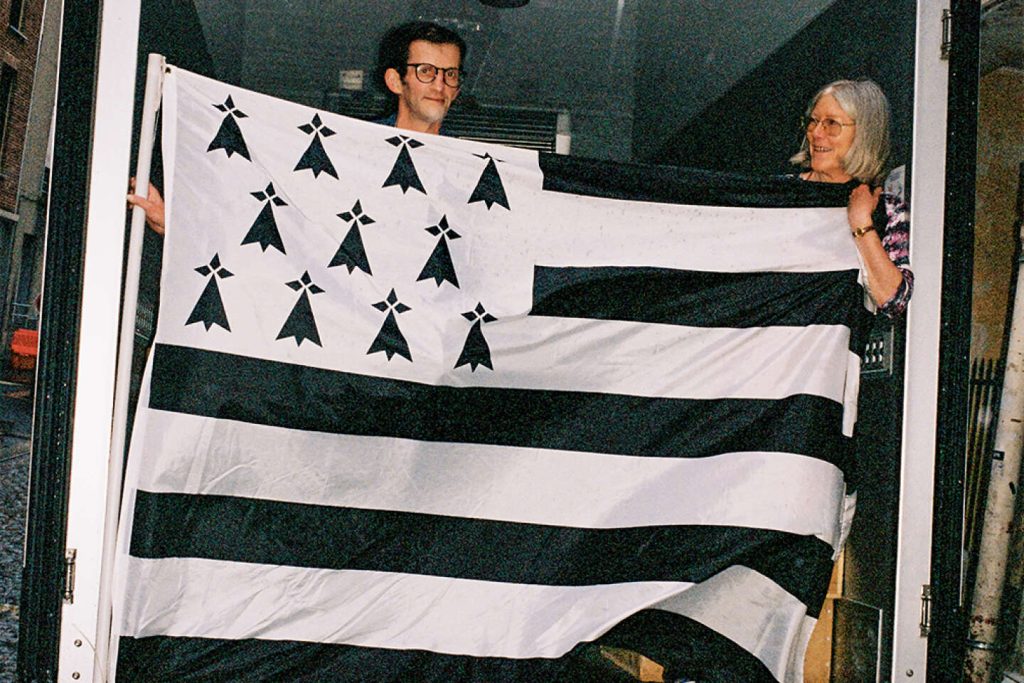In the past, Saint-Denis was not yet the city with one hundred and twenty nationalities at the gates of Paris and its illusions. Immigration was not yet piled up in too high council houses and too narrow apartments, with an unobstructed view of the Sacré-Cœur. However, people were already packed, human flesh that could be compressed indefinitely, in what were slums and shantytowns, the horizon and the sky blocked by factory chimneys. Already, the slumlords, tireless vultures, were thriving on the misery and dreams of a better life. The new arrivals, with their strange customs and obscure language, inspired contempt and fear. At that time, they did not come from all corners of the world, but from the Breton countryside. They were strangers in their own country, coming from Trégor, Léon, Vannetais, or Cornouaille. In the 1950s, it was claimed that one in two Dionysians was born in Brittany or of Breton origin.
Gérard Réquigny, 74, knows this story of exile and attachment well: it is his family’s story. He tells it at the headquarters of the Amicale des Bretons de Saint-Denis, “Ti Breizh e Sant-Denez” in the original version, on the ground floor of a building in the city center, near the quays of the RER station. Among a palette of Breizh Cola, a stack of crepe makers, a library filled with books on Brittany, and an essential Gwenn ha Du, the black and white emblem of pride, the president of the association recounts his genealogy, which was also that of an entire city. On his maternal side, an ancestor, Jean-Marie Le Guillermic, came at the end of the 19th century from Plounévez-Moëdec, a town in what was then the department of Côtes-du-Nord, now known as Côtes-d’Armor. He met his future wife, Marie-Françoise Le Digarcher, born in Ploubezre, in the same department, in Saint-Denis. On his paternal side, a great-great-grandfather, Jean-Louis Coty, arrived in Saint-Denis in the mid-19th century from Tréglamus, also in the Côtes-d’Armor. His son, Emile Coty, married Marguerite Le Moal, also born in Tréglamus. A grandfather, Roger Réquigny, came from Le Pouliguen, in the department of Loire-Atlantique.
The family biography is a network of adventurers out of necessity, born to become peasants struggling in vain against granite or risking their lives as sailors for uncertain catches, all children of poverty, trying to escape it at all costs. These wretched individuals came to the capital, becoming workers in Saint-Denis. Forever poor, they were true proletarians. The story of the Breton immigrants in Saint-Denis is a testament to resilience, hard work, and the pursuit of a better life despite the challenges they faced. Gérard Réquigny’s family represents the many families who left their homes in Brittany to seek opportunities in the industrial city of Saint-Denis, contributing to the cultural diversity and richness of the community. Through their struggles and successes, they have become an integral part of the history and identity of the city.
As Gérard Réquigny shares his family history, he also highlights the broader narrative of migration, integration, and adaptation that has characterized Saint-Denis over the years. The city has transformed from a hub of industrial activity to a melting pot of diverse cultures and traditions, with immigrants from all over the world now calling it home. The Amicale des Bretons de Saint-Denis serves as a gathering place for those who share a common heritage and a connection to Brittany, fostering a sense of community and belonging in this multicultural environment. Through their stories and experiences, members of the association celebrate their roots while embracing their new life in Saint-Denis. As the city continues to evolve and grow, the legacy of its immigrants, including those from Brittany, remains an important part of its cultural tapestry and collective memory.
In conclusion, the story of the Breton immigrants in Saint-Denis is a testament to the resilience, hard work, and determination of individuals seeking a better life for themselves and their families. Their struggles and successes have contributed to the cultural richness and diversity of the city, shaping its identity and history. Through community organizations like the Amicale des Bretons de Saint-Denis, these immigrants have found a sense of belonging and connection to their roots, while embracing the opportunities and challenges of their new home. As Saint-Denis continues to evolve as a vibrant and diverse city, the story of its immigrants, past and present, remains an important part of its narrative and heritage.


